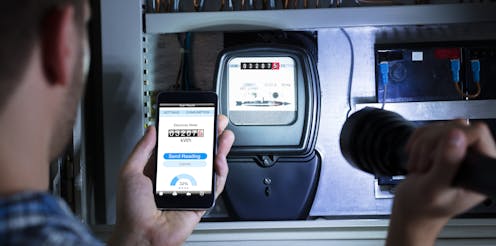I chose the electricity retailer offering the best deal for my home. That's not what I got
- Written by Bruce Mountain, Director, Victoria Energy Policy Centre, Victoria University

Households in most of Australia have been able to choose between electricity retailers for more than a decade. The main reason is to reduce their bills[1].
But past research by the Victoria Energy Policy Centre[2] (at Victoria University) has found only marginal benefits in switching retailers. Our study of more than 48,000 bills from Victorian households in 2018, for example, found households typically saved less than A$50 a year[3] by switching energy providers.
Has anything improved since then? A few weeks ago I decided to test the market for my own household supply. To guide my choice, I evaluated 357 competing offers from 30 retailers using my half-hourly consumption and solar export data for the last year.
The 357 offers came from the Victorian government’s price comparison website[4], the only comprehensive source of all commonly available offers. After having found the deal I wanted, it was a painless and quick online process to switch to the new retailer.
Two weeks later I checked what had actually happened.
I discovered my new retailer had not switched me to its cheapest offer, but to one of its most expensive. I estimate I’ll still save about $143 for the year. But I would have saved about $100 more if the company had put me on its cheapest advertised offer (which, after all, was the reason I chose this retailer).
These numbers might not be large, but I have a small bill because I have solar panels and consume much less electricity than typical customers. For the typical customer, the differences would be bigger.
I have asked my new retailer to explain, but am yet to receive a reply.
How I worked out my (lack of) savings
My electricity bill has several elements: a daily charge, two consumption rates and a solar feed-in rate. You might note such elements in the offer you choose and then compare them to the offer the retailer actually puts you on. But you’d need to be highly motivated with time on your hands to do so.
To do my sums I used special software to scrape and price all competing offers. This software, developed over several years and used in our previous research, is not publicly available.
The outcome of my test is broadly consistent with the findings of our previously mentioned research.
Read more: You can't trust the price-comparison market, as iSelect's $8.5 million fine shows[5]
That analysis – using more than 48,000 bills[6] voluntarily uploaded to the Victorian government’s price comparison website in 2018 – found typical households could theoretically save A$281 a year, or about 20% of their bill, by switching to the best possible advertised deal.
In reality, however, customers who switched retailers saved only A$45 a year – or about 3% of their annual bill.
I cannot be sure my recent experience is typical. But I think it likely other switchers will have had a similar experience. My study of the 357 competing offers available to me suggests many retailers seem to use “bait and switch” – or “tease and squeeze” – marketing strategies to attract new customers.
Read more: How better data would improve the electricity market[7]
What should be made of this?
Choice can be valuable. Competition can lead to innovations – such as solar and battery packages with zero upfront payment that are now appearing in the the market. But the benefit of reforms making it easier to choose and switch between electricity retailers are not being fully realised.
The more complex the market becomes as electricity generation is progressively decentralised and electricity buyers also become sellers, the harder it becomes to assess the merits of the complicated offers from energy retailers. Or even to know if what you signed up for is what you are actually getting.
Had I known my new retailer would not switch me to its best offer (the one that attracted me in the first place), I wouldn’t have switched.
This underlines the need for governments and regulators to look at how the market is working in practice, not just in theory.
Read more: Your household power bills could be 15% cheaper, if Australia's energy regulator was doing its job[8]
Examples of this approach are the 2017 independent review of Victoria’s electricity and gas retail markets chaired by former deputy premier John Thwaites[9] and the Australian Competition and Consumer Commission’s 2018 inquiry into electricity affordability[10]. But these are exceptions.
The devil lies in the detail of how customers search for better offers and then switch to retailers in pursuit of those better offers. Regulations to clean up possibly misleading advertising and “sharp” business practices should flow from that.
References
- ^ reduce their bills (www.accc.gov.au)
- ^ Victoria Energy Policy Centre (www.vepc.org.au)
- ^ less than A$50 a year (theconversation.com)
- ^ website (compare.energy.vic.gov.au)
- ^ You can't trust the price-comparison market, as iSelect's $8.5 million fine shows (theconversation.com)
- ^ using more than 48,000 bills (link.springer.com)
- ^ How better data would improve the electricity market (theconversation.com)
- ^ Your household power bills could be 15% cheaper, if Australia's energy regulator was doing its job (theconversation.com)
- ^ chaired by former deputy premier John Thwaites (www.energy.vic.gov.au)
- ^ 2018 inquiry into electricity affordability (www.accc.gov.au)
Authors: Bruce Mountain, Director, Victoria Energy Policy Centre, Victoria University







